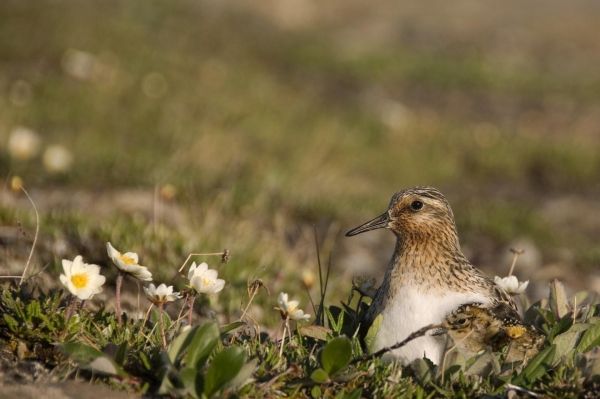Migratory sandpipers breeding in Greenland who choose to spend the winter in West Africa instead of elsewhere along the East Atlantic coast have a lower chance of survival, are more likely to skip their first breeding season and arrive later at their breeding grounds. An article in the Journal of Animal Ecology, spearheaded by researcher Jeroen Reneerkens (University of Groningen and the Royal Netherlands Institute for Sea Research, NIOZ), challenges the widely held idea that the costs of longer migratory flights are inevitably offset by benefits in the winter habitats.
Sanderling
The sanderling is a small migratory shorebird that breeds on the high arctic tundra. In late summer, it migrates to beaches in tropical or temperate regions. Beach visitors may know them as the grey-white birds that run back and forth in front of the waves. Their annual migratory flights vary between 3,700 and 22,000 km. When Greenlandic sanderlings are a few months old, they choose a winter habitat in a coastal area somewhere between Scotland and Namibia, such as the Wadden Sea Islands. They remain faithful to that location for the rest of their lives, only interrupted by long annual flights to Greenland to breed.
The pros and cons of various wintering habitats
An international research team, led by Dr. Jeroen Reneerkens of the University of Groningen and NIOZ, wondered why one sanderling may choose to stay in the United Kingdom for the winter, while another from the same breeding population migrates all the way to Namibia. For seven years, they studied the pros and cons of spending the winter in several locations in Europe and Africa. The team used colour-rings to individually tag thousands of birds, which were then observed and reported by a large international network of birdwatchers. This allowed the researchers to accurately estimate both the survival probabilities and the timing of migration.
Read more at University of Groningen
Image: Sanderlings breed on Greenland but spend the winter along European or African coasts. (Credit: Jeroen Reneerkens)


